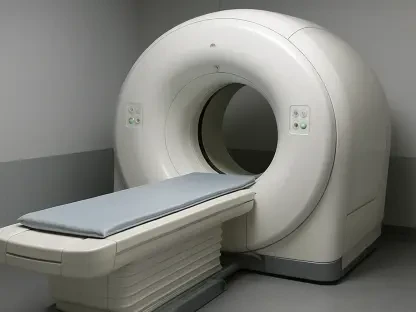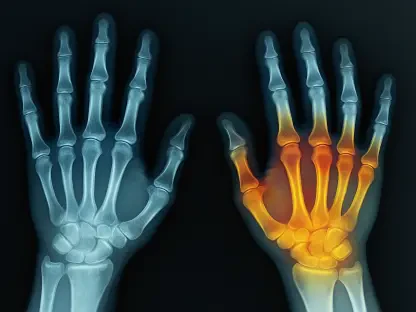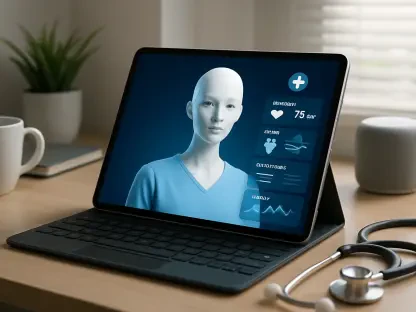In an era where healthcare systems worldwide grapple with persistent staffing shortages, a pressing question emerges: can technology offer a sustainable solution to this crisis, particularly in overwhelmed hospitals and clinics? In regions like Germany, facilities face an uphill battle with overburdened front desk staff and administrative bottlenecks that hinder patient care. Enter artificial intelligence, a tool that promises to revolutionize the way healthcare facilities manage routine tasks. A Berlin-based startup, Praxipal, has stepped into the spotlight with its AI receptionist, Luna, designed to automate front desk operations. With significant funding and a vision to alleviate workforce constraints, this innovation sparks curiosity about whether AI can truly bridge the gap in healthcare staffing. As administrative burdens continue to weigh heavily on medical professionals, exploring how such technology could transform operational efficiency and patient access becomes not just relevant, but essential for the future of healthcare delivery.
Tackling the Staffing Crisis with Technology
The healthcare sector has long struggled with a shortage of personnel, a challenge that disrupts patient care and strains existing staff. In many facilities, front desk operations—handling appointments, answering inquiries, and managing patient communications—consume a significant portion of human resources. Praxipal’s AI receptionist, Luna, aims to address this issue by automating these repetitive tasks. Integrated with practice management systems, Luna operates as a virtual staff member, engaging with patients around the clock in a remarkably human-like manner. This automation frees up medical assistants to focus on direct patient interactions rather than paperwork or phone calls. By reducing the administrative load, the technology offers a potential lifeline to understaffed clinics, allowing them to optimize limited resources. The promise of such tools lies in their ability to maintain operational flow even during peak demand, ensuring that patient access to services remains uninterrupted despite staffing constraints.
Beyond immediate relief, the adoption of AI in healthcare administration signals a shift toward long-term sustainability. Luna’s ability to handle routine inquiries and scheduling with precision means that human staff can dedicate more time to complex, empathy-driven tasks that technology cannot replicate. This balance is crucial in a sector where burnout among workers is a growing concern. Moreover, the 24/7 availability of an AI receptionist ensures that patients receive timely responses, even outside regular hours, enhancing overall satisfaction. While the technology cannot fully replace human interaction, it serves as a vital support system, particularly in regions facing acute labor shortages. Praxipal’s innovation reflects a broader trend of leveraging digital solutions to address systemic challenges, raising important questions about how far automation can go in reshaping healthcare workflows. The early success of such tools suggests a future where technology and human expertise coexist to create more resilient systems.
Financial Backing and Scalable Ambitions
Praxipal’s journey to transform healthcare administration gained significant momentum with a recent $6.7 million seed funding round, led by HV Capital and supported by investors like Nebular and Anamcara Capital. This substantial financial backing underscores a strong belief in the potential of Luna to redefine front desk operations across medical facilities. The capital is earmarked for enhancing the AI’s capabilities and expanding its reach beyond initial applications in orthodontics to other medical specialties. Such investment highlights the growing confidence in AI-driven solutions to tackle industry-wide problems like staffing shortages. With plans to scale, Praxipal aims to adapt Luna to diverse healthcare settings, addressing a wider array of administrative needs. This development positions the startup as a key player in the automation space, with the potential to influence how clinics and hospitals manage their operations on a global scale.
Expansion, however, is not just about reaching more facilities but also about refining the technology to meet varied demands. Luna’s design prioritizes adaptability, allowing customization to fit the unique workflows of different practices without causing disruption. This flexibility is a cornerstone of Praxipal’s strategy to ensure that the AI integrates seamlessly into existing systems, whether in small clinics or large hospitals. The funding will also support advancements in how Luna processes complex tasks, making it more than just a basic chatbot but a sophisticated virtual assistant. As the startup broadens its scope, the focus remains on balancing efficiency with the nuanced needs of healthcare providers. The ambitious roadmap ahead suggests that Luna could become a model for scalable AI solutions, potentially setting a standard for how technology addresses labor shortages. Investor confidence, paired with strategic growth, paints an optimistic picture of automation’s role in healthcare’s future.
Balancing Innovation with Human-Centric Care
As AI tools like Luna become more prevalent, they bring to light the delicate balance between technological efficiency and the human touch that defines healthcare. Automation excels at streamlining repetitive tasks, such as scheduling and patient follow-ups, which often bog down staff. Luna’s ability to operate autonomously and communicate effectively with patients reduces wait times and improves access to services. Yet, this efficiency must be weighed against the need for personal connection in medical settings. Patients often seek reassurance and empathy, elements that AI cannot fully provide. Praxipal’s approach focuses on augmenting human labor rather than replacing it, ensuring that staff can prioritize meaningful interactions while the AI handles routine duties. This synergy aims to enhance care delivery, but it also sparks debate about where the line should be drawn between machine and human roles in such a sensitive field.
Concerns surrounding AI in healthcare extend beyond emotional connection to practical and ethical considerations. Issues like patient privacy and data security remain at the forefront of discussions, as any breach could undermine trust in such systems. Additionally, there is ongoing scrutiny about whether automation might lead to job displacement, even as it addresses staffing shortages. Praxipal has positioned Luna as a complementary tool, designed to support rather than supplant human workers, but public perception varies. Some in the healthcare community praise the cost-effectiveness and operational improvements, while others caution against over-reliance on technology. Navigating these diverse perspectives will be critical for widespread adoption. As AI continues to evolve, its integration into healthcare must prioritize transparency and safeguards to ensure that innovation enhances rather than detracts from the patient experience. This balance will shape how tools like Luna are received in the long term.
Paving the Way for a Tech-Driven Future
Reflecting on the strides made by Praxipal, it becomes clear that Luna marks a pivotal moment in addressing healthcare staffing challenges through automation. The AI’s early impact demonstrates a tangible reduction in administrative burdens, allowing clinics to operate more smoothly despite limited personnel. The substantial funding secured by the startup validates the industry’s readiness to embrace such solutions, while Luna’s adaptability showcases the potential for tailored applications across medical specialties. Looking ahead, the next steps involve refining these tools to address privacy concerns and labor dynamics, ensuring that technology complements human care. Healthcare providers are encouraged to explore pilot programs with AI systems, assessing their fit within specific workflows. As the sector moves forward, fostering dialogue between tech innovators and medical professionals will be essential to create systems that prioritize both efficiency and empathy, shaping a future where staffing shortages no longer dictate the quality of care.









